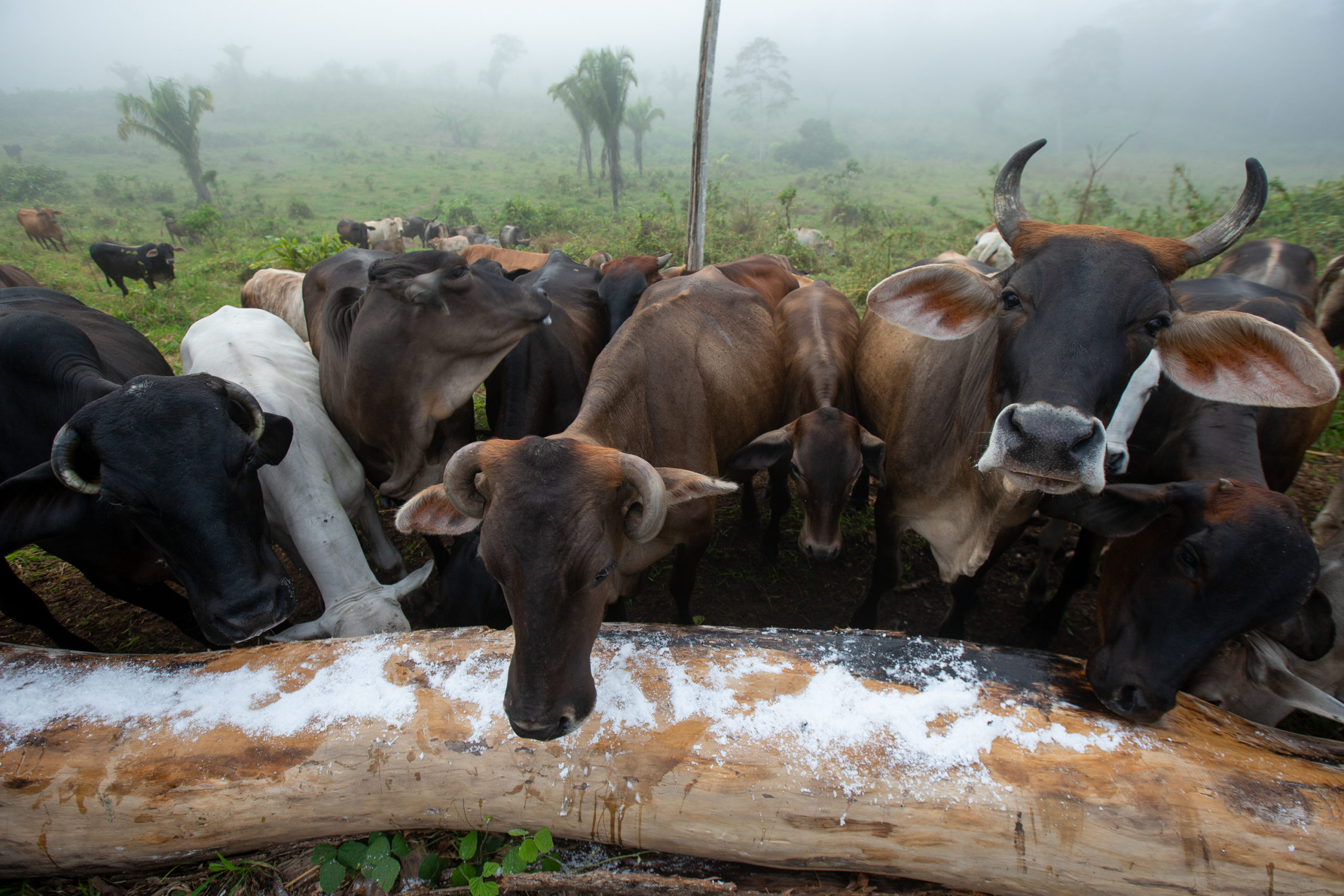-
The guidelines for sustainable livestock in Madre de Dios are jointly developed by the Ministry of Agriculture and Irrigation and the Regional Government of Madre de Dios and seek to contribute to the trajectory of decarbonization of Madre de Dios.
-
Government and civil society, with the participation of the Livestock Technical Bureau, will support the review in Madre de Dios and facilitate its escalation to all of the Peruvian Amazon within the framework of the Coalition for Sustainable Production.
Peru has the second largest area of tropical forests in Latin America. However, the Peruvian Amazon, which is home to nearly 95% of the country’s forests, has an average annual loss of more than 125 thousand hectares, representing with 51%, the largest contribution to greenhouse gas (GHG) emissions, in one of the countries with the highest risk of extreme weather events.
In the Peruvian Amazon region, livestock farming is a productive sector with the potential for growth based on differentiation in sustainability and attributes of origin. Thus, it is an economic alternative to deforestation activities while meeting national demand, which in cattle is only 6.2 Kg* per capita.
According to the analysis of GHG emissions from Peru published by MINAM in 2019, enteric fermentation emissions from livestock, methane that is generated during the digestion of ruminants, accounts for 35.5% of emissions from the agricultural sector (with 9,316.9 Gg CO2eq).
Given this, the livestock sector has a significant impact on GHG emissions, on the change in forest land use, and on the country’s food and economic contribution. For these reasons, in order for jurisdictions such as Madre de Dios and San Martín to implement concrete actions within the framework of their decarbonization and low-emission development trajectories, the Governors’ Climate and Forest Task Force (GCF Task Force), with the support of The Climate Group as secretariat for the Under2 Coalition, promoted the virtual seminar on Sustainable livestock systems for decarbonization pathways in the Peruvian Amazon.
Watch the webinar presentation below, or click here download the presentation PDF.
Representatives from the GCF Task Force, Under2MOU of Madre de Dios and San Martín, the Ministry of Agriculture and Irrigation, and WWF Peru participated in the event. Updates from the current state of the sector emphasized the importance of the balance between development, ecosystems health, and job opportunities. For its part, FAO Ecuador shared its experience of the Sustainable Livestock Project in which, by following the scientific bases to carry out this productive activity, it is possible to maintain the integrity of the environment.
Within the framework of the Coalition for Sustainable Production, various priority work topics were identified. These topics of focus include assessing direct causes of deforestation, good practices of environmental sustainability, and investment finances for livestock production development. In addition to these focus areas, an accompaniment group was formed by the government and civil society with the participation of the Livestock Technical Table to review processes in Madre de Dios that facilitate its escalation to the whole of the Peruvian Amazon.
At the close of the virtual seminar, guidelines were announced for sustainable livestock farming for this region. This includes participation of MINAGRI and the Regional Government of Madre de Dios in conjunction with the Livestock Technical Roundtable. The driving group will be made up of the Ministry of Agriculture and Irrigation, WWF Peru, the GCF Task Force, and GOREMAD to accompany the process and evaluate the guidelines to the Peruvian Amazon within the framework of the Coalition for Sustainable Production. The GCF Task Force will provide support for the regional government to advance this work.
The plan seeks to align with Peru’s national and international policy, both the National Livestock Development Plan 2017-2027 and the fulfillment of the Nationally Determined Contributions Peru has submitted to the United Nations Framework Convention on Climate Change. The convention helps analyze steps that the country has promised to take in order to mitigate and adapt to the effects of climate change.
*In Madre de Dios in 2016, the consumption of beef from cattle was 8.5 Kg / person / year. Source: Report of meat production and purchase by Peruvian meat consumers. Aurum Consulting and Market, year 2016.
According to information from the Ministry of Economy and Finance, it is estimated that the effects of climate change generated by the increase in average temperature, which is caused in large part by an increase in concentrations of Greenhouse Gases (GHGs) in the atmosphere, could cause in the next fifty years a loss of global GDP of the order of 9%.
About the Climate Pathways Project
The Climate Pathways project supports state and regional governments to develop a transformational process or “path” that allows long-term emissions reduction, in collaboration with local businesses and communities. The goal is to reduce emissions from a set of sectors including agriculture, forestry and other land uses (AFOLU), and to support forest conservation and soil restoration.
The project is funded by Norway’s International Climate and Forest Initiative (NICFI), is led by TCG (Secretariat of the Under2 Coalition), and implemented by the GCF Task Force, Winrock International, the Center for Climate Strategies and WWF Peru.
For more information
Nelson Gutiérrez nelson.gutierrez@wwfperu.org
Daniel Coronel dcoronel@mda.org.pe

